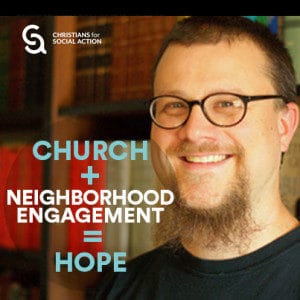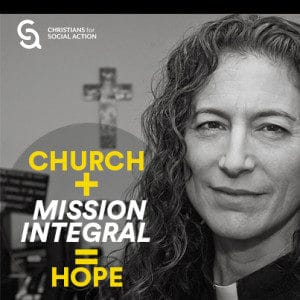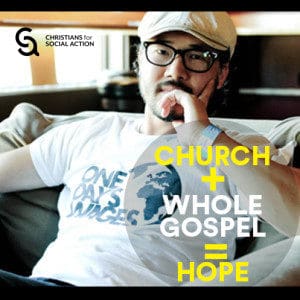When I look at the church, what gives me hope?
When I look at the vast diversity of churches in North America, there are two related things that give me great hope. First, I am encouraged by the number of churches that are taking seriously their call to be a holistic community of God’s people, and not just a loose network of individual Christians or a spiritual filling station for Christian consumers. Groups like the Ekklesia Project are leading the way in helping churches cultivate practices of congregational formation—church members learning to have difficult conversations together in a culture where civil dialogue is a lost art and to be present to one another in an age of attention deficiency. To the extent that churches can be communities that embody the healing and reconciliation of Christ amidst the ever-increasing fragmentation of the 21st century, I think that we will have hope and good news to offer our neighbors.

And indeed neighborhoods are the other place where I see great hope among churches. Many churches are discovering that place matters, and they are working to be engaged in their neighborhoods and to bear witness to Christ’s love and peace amidst the particular neighbors and institutions and landscape in which they find themselves. The Parish Collective is doing the important job of helping churches to be engaged more deeply in their places, connecting churches that are on a similar trajectory, and sharing stories of innovative neighborhood renewal. “When we share our stories, connections, and resources in and across parishes,” they observe, “it helps weave together neighborhood churches, missional communities, and any group of Christ-followers that desires renewal in their neighborhood. The members of these groups or Parish Initiatives develop postures and practices for becoming present in their neighborhood and participating in what the Spirit is up to there.”
Many people talk about the effects of climate change or peak oil or other economic or ecological disasters that may or may not lurk on the horizon. Who knows how catastrophic these changes might be? Whatever happens, I think those churches that continue to doggedly pursue these shifts toward community and place will be well positioned to thrive amidst the realities of the next 50 to 100 years. And that gives me great hope.
C. Christopher Smith is the editor of The Englewood Review of Books, and co-author with John Pattision of Slow Church: Cultivating Community in the Patient Way of Jesus (InterVarsity Press, 2014).


